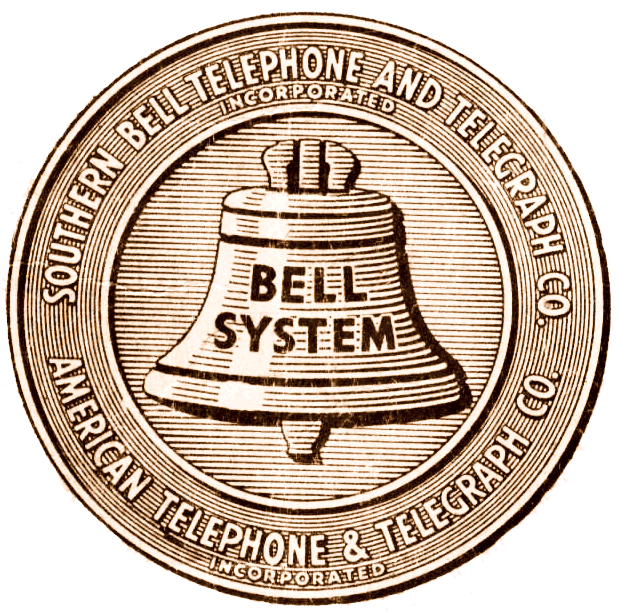There are more effects on someone than the weight loss. What you eat affects hunger, hormones, blood sugar, inflammation, bowel movements, energy, and more. This graphic is reductionist to the point of being deceptive.
I’ve been thinking a lot lately, what if you were asking about how to hike up a mountain. Like you really wanted to get into it seriously, and learn and be prepared for the demands of the trail. What if the internet essentially just kept telling you “the only thing that matters is increasing your elevation”
Like, yeah, that’s true in a very unarguable way. The summit is higher than the base. But if that’s the only thing on your mind you’re probably gonna make a lot of mistakes that make things way harder for you.
Nobody told you about hiking boots, so you just showed up in flip flops? Technically you still only have to accomplish the same task of increasing your elevation, but now you’ll be miserable and about 100x more likely to just quit.
What if the mountain path suddenly dips down before going back up? If all you know is you’re supposed to increase your elevation, you might get really freaked out and think you’re doing something wrong when you start descending.
All of this is to say, the multitude of details are very much worth discussing in terms of weight loss. Two things can be true at once: being in a calorie deficit will result in weight loss, and calorie counting as a strategy may not work for everyone unless they have the requisite knowledge required to design a sustainable diet for themselves
Great analogy! I appreciate you took the time to write this out.
This applies to all these diets, not just calorie counting. “Don’t eat carbs”, “don’t eat fats”, “don’t eat processed foods” are all different ways of saying “You just have to raise your elevation.”
They all imply there’s just one singular thing you have to do, but they’re not sustainable.
Your conclusion is great, it’s all about designing a sustainable diet for yourself that works.
I generally eat keto and have for years, there’s a bit more than “don’t eat carbs” behind it. Sure, if you just want to drop weight quickly go ahead and eat bacon and eggs for 6 month straight. You’ll be miserable but it’ll work. For me, Keto was an inroad to actually understanding nutrition, how to structure eating in a way that works well, and provided a “change of scenery” so to speak that enabled me to be more conscious of my body and how it reacts to certain things. I’m not going to sit here and say it’s the answer for everyone, I just wanted to point out that this graphic is also incredibly reductionist in their description of the diets as well and that sometimes these fad diets can have a meaningful impact on peoples understanding of nutrition and how their body works
To me it is not an informative graphic, it is a tongue in cheek one; all diets are reduction of calories
Yeah total nonsense.
Keto (not advertizing it, people just eating animals are the worst for our planet) works by changing your entire body to use Ketones instead of Sugar.
This completely changes your appetite and energy levels,
also you will be in a constant state of burning fat, so pauses will immediately cause weight loss, different from eating sugar, where you have glucose and glycogen still there.this is not proven.Just as a heads up, every study ever performed confirms that keto offers no additional weight loss benefits compared to any other diet when calories are equated. Something I think of often when the keto people start talking about how the magic supposedly works
Crazy, didnt know that.
Yeah it’s pretty wild considering how fervently people buy into it, but if you’re an evidence-driven person keto is not particularly attractive for weight loss unless you just personally enjoy it.
Scroll down a bit, we already have someone who swears the magic is real (and CICO isn’t) because they lost weight on keto, and their partner estimated their calories to be waaaaaay higher than before starting the diet. It’s a very compelling narrative if you come into it wanting keto to be true, which is why there’s almost like a religious fervor built up around it. But it’s never played out that way in an actual study
My body loves Keto, as I have some strange non-diabetes sugar issue. But vegan keto is insane.
My point was just tallying food calories in is a shit way to be as reductionist as the pic is being.
Drinking straight olive oil while not being on keto is not gonna go great for weightloss, but is fine on it.
At no point did I say the CICO diet doesn’t work but go off I guess.
Right, sorry, to correct my mistake, here is what you actually said
CICO is flatout not the mechanic used.
My sincerest apologies for so severely misrepresenting your words. Have a good rest of your night with your olive oil shots
For those interested, science vs is a great podcast where they review the latest research studies and interview scientists publishing papers about various topics, with all their sources cited.
They have a few weight loss/diet episodes, and while everyone here is correct about how different food has different impacts on the body, it seems like science always concludes that losing weight comes from eating less food no matter the diet.
So while this post may be oversimplified, if your goal is just to lose weight, it’s not wrong. Maybe not healthy, but not wrong.
The podcast is targeted at the layman, so it’s not just boring academics talking about things, check it out.
I think the point of the infographic is that there isnt a weight loss diet in existence that encourages a calorie surplus. Theres a literally infinite number of variables, ideologies, psychological and physiological differences as well as desired secondary outcomes that make certain weight loss diets more useful or attractive to individuals but they all share the same KEY mechanism for reducing adipose tissue as a primary goal.
IF was the best for me because it was the easiest. No need to avoid anything or do any portion control. Just don’t eat for a certain number of hours. I lost weight without having to watch what I eat. I think just the fact that I stopped snacking in the evening already helped a ton. The best diet is the one you can stick with.
Various diets essentially tackle the issues of caloric balance from different sides and employ some hacks to either make you feel full with little calories or to force body to dispose of such calories more efficiently.
At the end of the day, it’s all caloric deficit, but you can make it in different ways.
And caloric deficit is only true on a fictitious notion of metabolism via a simplified system model of a human as a black box. As far as weight loss strategies go, calorie counting is extremely ineffective, and often leads to worse quality of life.
If your goal is however to shame people with a highschool level understanding of metabolism by making the problem into something “simple” they are failing to do with your actively bad advice, it’s effective.
Yes, the largest factor for reducing body weight is calorie balance. Yes, there are nuances as other commenters point out about different effects on your body. But a lot of the discussion in this thread is really low quality and sources are few and far between.
I highly recommend Harvard’s Nutrition Source for high quality science-based information on diet. The language is very accessible as well.
If you have specific questions about your health and diet, I’d suggest speaking with a Registered Dietician (RD). They are licensed medical professionals who specialize in this.
For those who are unaware:
Registered Dieticians are different than NutritionistsRegistered Dieticians are well educated (as of now, requires a Masters of Nutrition degree), and have to take continual education and bi-yearly license renewal tests, to stay relevant and up-to-date.
Nutritionists can literally be anybody who wants to call themselves a Nutritionist. No education/training/credentials necessary.
Registered Dieticians are well educated (as of now, requires a Masters of Nutrition degree), and have to take continual education and bi-yearly license renewal tests, to stay relevant and up-to-date.
Nutritionists can literally be anybody who wants to call themselves a Nutritionist. No education/training/credentials necessary.
This is so true. I would also add that you tend to find more “Nutritionists” on social media pushing bad info. They are basically the chiropractors of the nutrition world.
I started dieting a month ago to lose a bit of weight. Im lazy so I dont exercise more, I just eat less. Im lazy so I dont think about what I eat so I eat everything, I just eat less of it.
It works. I dont see why it wouldnt.
The only deviation is eat a bit more twice a week so the body doesnt get used to a low intake and start working on low power. Though I dont know if thats even possible.
Same here. I generally eat decent food since I enjoy cooking but I do smaller portions and straight up avoid snacks and sugar drinks as much as possible. It’s working, slowly but it’s working and I don’t feel miserbake doing it. People keep forgetting it’s a marathon and not a sprint.
deleted by creator
*citations needed
Where is plant-based?
Oh my bad:
Plant Based | A diet made up of only plants | by creating a caloric deficit
You’re saying my vegan diet saves animal lives and makes me feel less guilty by creating a caloric deficit???
Just can’t stop winning tbh
https://www.jandonline.org/content/positionPapers that is not the current position of the academy and hasn’tbeen for a long time. you should read the studies on plant based diets before spreading misinformation.
The list seems to only be for dangerous, marketable diets. LOL
deleted by creator
Ate paleo for a few months a couple of years ago. Got to under 10% body fat, decent muscle growth (was working out) and had clarity of mind like never before. Can only recommend it, but I drifted back into junk food and beer.
Ate paleo for a few months a couple of years ago. Got to under 10% body fat, decent muscle growth (was working out
Those results were probably in spite of the diet, if you were only on it for a few months.
Unless you started at 30% fat and unable to do a single push up, I think you were probably already in decent shape before the diet experiment.
Absolutely. I was already lifting weights and was at around 16% body fat. Best thing about that diet was how it made me feel throughout the day.
How does eating foods with more fat help losing weight? What am I missing?
Fat doesn’t make you fat. Overeating is generally the problem. Check out a book called The Big Fat Surprise – it’s quite a good read.
Because from a weight-loss perspective it doesn’t matter what you eat, only how much calories you stuff into your mouth. You could eat nothing but bacon and still lose weight, if you eat only so much that you still burn more calories per day than the bacon delivers. If you keep your portions the same size but move to food with more calories, you will of course gain weight.
Fat can also trigger parts of your system to stop craving it, so you stop trying to aquire it by overeating. There are some science articles about it.
Staving off constant hunger can be as easy as cooking up a lentil (daal) soup that has some oil/butter in it. The lentils make you get a very full satisfied feeling in the bowel and the fats hit the part that wants fats.
Carbs are processed first, so if you don’t eat carbs, in theory your body will burn depot fat earlier.
You still need to eat less calories than you burn though.
Everyone in the comments below is talking about calories.
The reason people are so frustrated is that while calories are important physically, they are NOT the main issues.
Carbohydrate Insulin Model of Obesity https://www.youtube.com/watch?v=OK1zePxBJu4
TLDR: high hormonal insulin causes havoc in your body, making weight loss very difficult, reducing systemically high insulin levels let’s the body self regulate more effectively.
The good thing about a calorie deficit is that it always works. Unless your body somehow escapes the laws of physics or you developed the power of photosynthesis, you WILL lose weight if you eat less than your caloric needs.
You’re technically correct.
For somebody eating 1500 calories a day, a 10% deficit is 150 calories. It is incredibly hard for humans to accurately measure all of their meals so they hit exactly 150 calorie deficit. It is far more efficient to allow the biological systems, with proper hormone regulation, to use their own feedback loops to do the self-regulation. You can do it with math and scales if you really want to, but you’re making it harder
I don’t know. I find counting calories very easy. All you need is a scale and some calorie counting app, like Fat Secret.
You could have medical anomolies that slow metabolism, so that weight loss is extremely difficult, but even then a reduction in caloric intake will cause weight loss. But somebody surviving on 2000 a day dropping 200 calories out is easy, compared to somebody sustaining on an 800 calorie diet and trying to cut 200 out.
There are some meds like olanzipine? that tweak your metabolism and it uses calories more efficiently, therby causing weight gain on same caloric intake, so the remedy on that med is eat less calories
Spot on! The CICO model should be outdated. Weight management should be a multi factorial issue taking into account more than just food intake.
CICO is only part of the story. Yes a calorie deficit will help you get the weight off but will it help keep it off?
From personal experience, once I beat the insulin spikes, keeping the weight off was almost effortless. I could look over ice cream after dinner and not even notice it, despite being a complete fiend for the stuff.
Oh yeah, rocky road…moose tracks… So many guilt filled memories.
I will still polish off the entire tub from time to time, old habits die hard I guess, but it is nice to not have it be a need any longer.
Removed by mod
Intermittent fasting is not a diet, but it can be combined with any diet.







